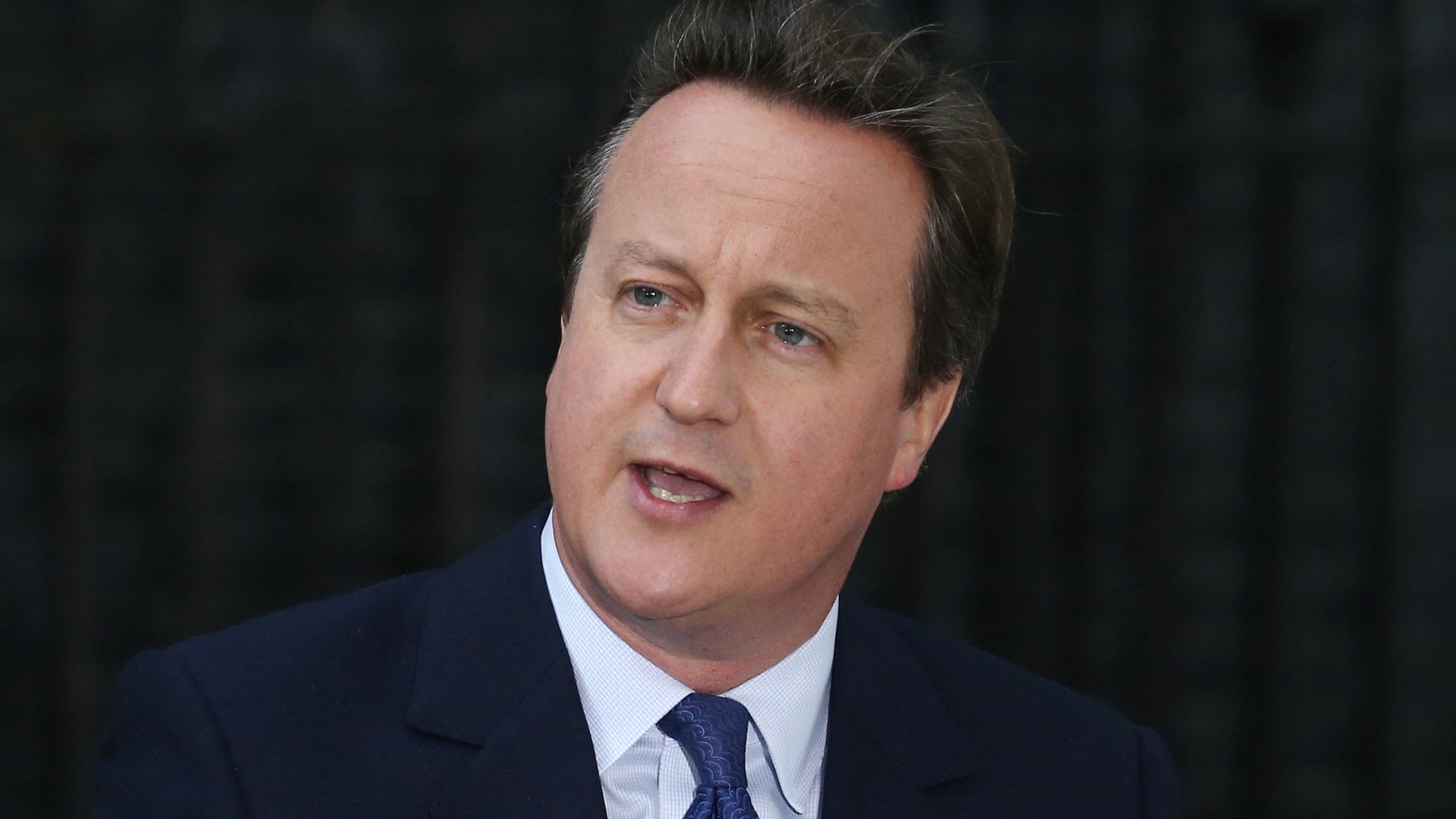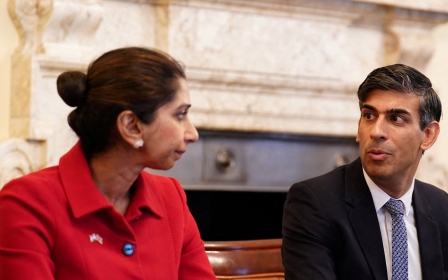Israel-Palestine war: What David Cameron’s shock return means for Gaza

Former British prime minister David Cameron has made a shock return to frontline politics after he was appointed foreign secretary during a cabinet reshuffle on Monday.
British premier Rishi Sunak appointed Cameron after a highly publicised spat between Downing Street and Suella Braverman, the former home secretary who was sacked following her criticism of the policing of pro-Palestinian demonstrations.
The move saw former foreign secretary James Cleverly take up Braverman’s old position and Sunak bring Cameron back to become the UK’s chief diplomat.
Cameron was believed to have been stuck in permanent political obscurity after the 2016 Brexit vote, which he oversaw and lost.
He quit his role as prime minister immediately after the result of the referendum was announced and also resigned his seat.
New MEE newsletter: Jerusalem Dispatch
Sign up to get the latest insights and analysis on Israel-Palestine, alongside Turkey Unpacked and other MEE newsletters
The former Conservative leader, who will be appointed to the House of Lords - Britain’s unelected upper house of parliament - to serve as foreign secretary, will take on the position amid one of the worst diplomatic crises in recent memory.
Israel’s continued bombardment of Gaza has led to a humanitarian disaster imperilling the besieged area’s 2.3 million residents and also threatens to spill over into a wider regional war.
Britain has been a committed supporter of Israel since the war started on 7 October with an attack by Hamas-led fighters on southern Israel, which killed around 1,200 Israelis, according to the most recent estimates.
In retaliation, Israel has killed more than 11,000 Palestinians in Gaza, of which the vast majority are civilians, including women and children.
Follow Middle East Eye's live coverage for the latest on the Israel-Palestine war
Cameron is unlikely to deviate far from the precedent set by his predecessor Cleverley.
Within the British political establishment at present there is a strong cross-party consensus on backing Israel unconditionally.
Neither Sunak’s Conservatives nor the opposition Labour Party are calling for a ceasefire.
It is unlikely therefore that Cameron’s past comments on Palestine and Israel have much relevance to the current situation.
Early criticism
No sooner had Cameron come to power in May 2010 than he was thrown into the midst of a foreign policy crisis involving Israel.
On 31 May that year, Israel attacked a flotilla of boats attempting to break its siege of Gaza and deliver aid supplies, with Israeli forces killing 10 Turkish citizens onboard the main vessel, the Mavi Marmara.
'I stand in complete solidarity with Israel at this most challenging time and fully back the prime minister and UK Government in their unequivocal support'
- David Cameron
Cameron reiterated the “UK's strong commitment to Israel's security” but urged Israel to respond constructively to “legitimate” criticism of its actions, further calling the situation “unacceptable”.
While blaming Hamas for the siege, he doubled down on his criticism of Israel in July of that year during a visit to Turkey, in which he said Israel’s actions were “completely unacceptable” and compared conditions in Gaza to a prison camp.
But in the months and years that followed, Cameron became less critical of Israel and even walked back on some of his earlier comments.
By December of his first year in office, Cameron was telling Israel’s supporters that ties between the UK and the state were “unbreakable”, that Israel had the “right to defend itself”, and that he was opposed to the then-fledgling boycott campaign against it.
By March 2011, he was telling Jewish community groups in the UK that Israel had the right to search the Mavi Marmara.
Labour pressure in 2014
One of the biggest tests of Cameron’s support of Israel came in the summer of 2014, when Israel unleashed a vast bombing campaign and limited ground invasion into Gaza.
During the conflict, Cameron initially voiced his “grave concern” over civilian casualties caused by Israel while defending its "right to self defence" and later took a tougher stance due to pressure from the opposition Labour Party.
After a number of Israeli air strikes on UN buildings, Cameron said the Israeli attacks on civilians were "wrong and illegal".
The British government at the time also promised to block certain arms exports to Israel if they were deemed likely to play a role in the bombardment.
A major influence in tempering the British government’s support for Israel was the former Labour leader Ed Miliband, who made Cameron’s response to the Gaza war his main attack line for weeks.
Cameron would go on to beat Milliband comfortably in the 2015 general elections but was gone a little over a year later over the Brexit vote.
His time since leaving office has been spent lobbying for Chinese business interests in the UK, and his comments on international politics, including the Israel-Palestine issue, have been infrequent and fairly pedestrian for a Conservative politician.
His most recent comment on the ongoing conflict was a statement of support for Israel in the aftermath of the 7 October assault.
“I stand in complete solidarity with Israel at this most challenging time and fully back the prime minister and UK Government in their unequivocal and steadfast support,” Cameron wrote on X, formerly known as Twitter.
The statement contained little sense that he was planning a return to politics, let alone as foreign secretary.
But having returned, Cameron’s past views are probably less important than the current state of the British political climate with regard to Israel.
The opposition Labour Party is actively stifling anti-Israel sentiment within its ranks, meaning that any pro-Israel government position is likely to be met with full-throated support from the opposition benches.
Without such critical voices to hold the government’s stance to account, it is unlikely Cameron’s appointment will change Britain’s unequivocal support of Israel’s ongoing assault on Gaza.
Middle East Eye delivers independent and unrivalled coverage and analysis of the Middle East, North Africa and beyond. To learn more about republishing this content and the associated fees, please fill out this form. More about MEE can be found here.





